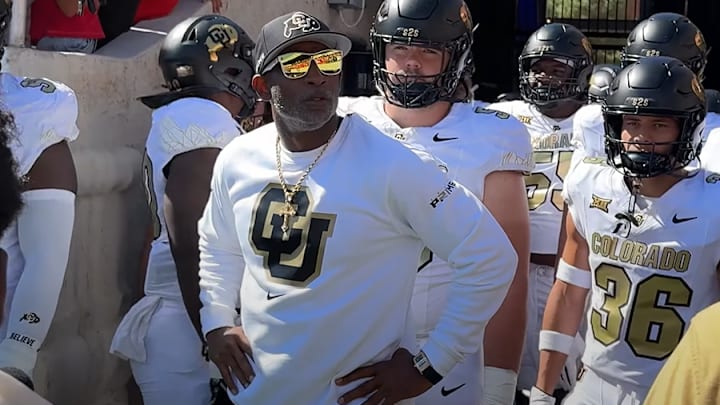Deion Sanders redefined the standard for player safety in postseason

Deion Sanders is redefining the standard for player protection in college football, and his latest move ahead of the Alamo Bowl against BYU further exemplifies his commitment to his team.
In collaboration with the University of Colorado and Athletic Director Rick George, Sanders secured unprecedented insurance coverage for star players Shedeur Sanders and Travis Hunter, setting a new precedent in collegiate athletics. This measure ensures that, should injury occur, these athletes would receive significant financial compensation, reflecting Sanders' dedication to safeguarding his players’ futures.
In today’s college football landscape, bowl games outside the College Football Playoff often see top players opt out to preserve their health and draft status. The risk of injury in a game with little bearing on national championships has led to many elite prospects sitting out. However, Sanders' initiative has shifted this narrative at Colorado. By ensuring comprehensive disability insurance, he has created an environment where star players feel secure enough to participate, honoring their commitment to teammates and fans.
For Shedeur Sanders and Travis Hunter, the stakes are exceptionally high. Both are projected to be top picks in the 2025 NFL Draft, and their performance in the Alamo Bowl could impact their future earnings. Recognizing this, Deion Sanders took proactive steps to mitigate potential risks. "We happen to have two players that are probably going to be the first two picks of the NFL Draft," Sanders remarked. "They have received the highest number of coverage that has ever been covered in college football." This reflects not only the value of these athletes but also the necessity of protecting their prospects.
George emphasized that the initiative extends beyond just Hunter and Sanders. "It was his idea to get disability insurance for our athletes to ensure that they played and were taken care of if there was some kind of injury," he stated. The university worked with multiple insurance companies to offer coverage for all players, ensuring that the entire roster benefits from this protective measure. While the premiums for stars like Sanders and Hunter are undoubtedly higher, Sanders' insistence on covering every player underscores his holistic approach to team welfare.
The implications of this move stretch beyond Colorado. As bowl games face declining participation from high-profile athletes, other programs may follow Sanders’ lead. Players opting out of bowl games has become commonplace, with the risk of injury outweighing the benefits for many. Colorado's approach challenges this trend by offering a model that prioritizes athlete security while preserving the integrity of the event.
Deion Sanders warns players about smoking at team hotel: 'Will be your last puff'
This highlights a growing conversation about athlete compensation during bowl season. The presence of players like Hunter and Sanders significantly boosts viewership and revenue for networks like ESPN, yet the athletes themselves see little direct financial benefit from their participation. Some have argued that television networks should compensate players who drive ratings, acknowledging their role in generating millions in advertising and sponsorship dollars. Sanders' insurance initiative serves as a temporary solution, but it also raises questions about the long-term fairness of the current system.
Coach Prime warns return flight will change if players don't 'handle business'
As Colorado prepares to face BYU, the spotlight will undoubtedly be on Hunter and Sanders. Their decision to play reflects confidence in the protections afforded by Sanders' leadership. For fans, the opportunity to watch two of college football's brightest stars take the field one more time is invaluable. More importantly, Sanders’ actions may inspire a broader shift in how schools and athletic programs approach player welfare during bowl season, potentially transforming the landscape of college football.
